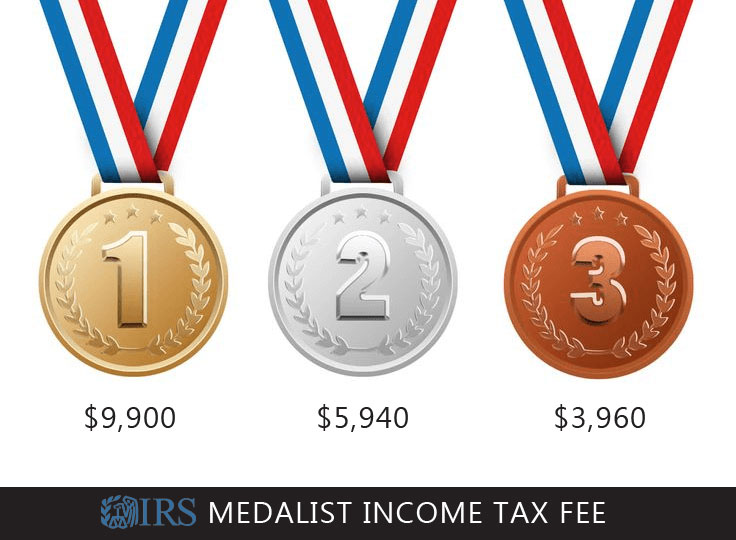
The 2016 Olympics are finally here. Team USA’s 554 athletes have traveled to Rio de Janeiro, Brazil to compete in the Olympic Games. United States athletes who win gold, silver or bronze medals receive monetary awards. However, winning doesn’t come cheap.
The Internal Revenue Service (IRS) recognizes and taxes these awards as regular income.
Team USA medalists are rewarded $25,000 per gold medal, $15,000 per silver medal, and $10,000 per bronze medal.
A medalist from Team USA could end up facing a tax bill of $9,900 per gold medal, $5,940 per silver medal, and $3,960 per bronze medal.

A bill was introduced in March 2016 by Senator John Thune to stop the IRS from taxing USA medalists. The bill passed the Senate by unanimous consent, according to Americans for Tax Reform.
This same issue occurred during the Olympics in 2012; therefore, Senator Marco Rubio introduced The Olympic Tax Elimination Act. This bill stated that the gross income of U.S. medal winners “shall not include the value of any prize or award won by the taxpayer in athletic competition in the Olympic Games.” (The Olympic Tax Elimination Act)
The total amount taxed per medal differs widely based on the athlete’s circumstances. However, it would still cost these athletes as much as 36% of their earnings. Fortunately, numerous accountants have proposed a way around the taxation. Related expenses, such as the cost of travel and equipment, can be reduced and deducted against income if an athlete treats their sport activities as a business.
